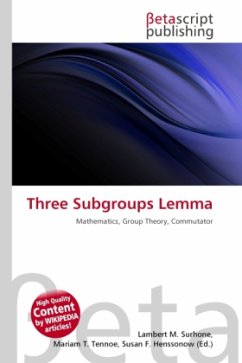High Quality Content by WIKIPEDIA articles! Whitehead's lemma is a technical result in abstract algebra, used in algebraic K-theory, It states that a matrix of the form begin{bmatrix} u & 0 0 & u^{-1} end{bmatrix} is equivalent to identity by elementary transformations (here "elementary matrices" means "transvections"): begin{bmatrix} u & 0 0 & u^{-1} end{bmatrix} = e_{21}(u^{-1}) e_{12}(1-u) e_{21}(-1) e_{12}(1-u^{-1}). Here, eij(s) indicates a matrix whose diagonal block is 1 and ijth entry is s. It also refers to the closely related result that the derived group of the stable general linear group is the group generated by elementary matrices. In symbols, operatorname{E}(A) = [operatorname{GL}(A),operatorname{GL}(A)]. This holds for the stable group (the direct limit of matrices of finite size) over any ring, but not in general for the unstable groups, even over a field. For instance for operatorname{GL}(2,mathbb{Z}/2mathbb{Z}) one has: operatorname{Alt}(3) cong [operatorname{GL}_2(mathbb{Z}/2mathbb{Z}),operatorname{GL}_2(mathbb{Z}
Bitte wählen Sie Ihr Anliegen aus.
Rechnungen
Retourenschein anfordern
Bestellstatus
Storno








